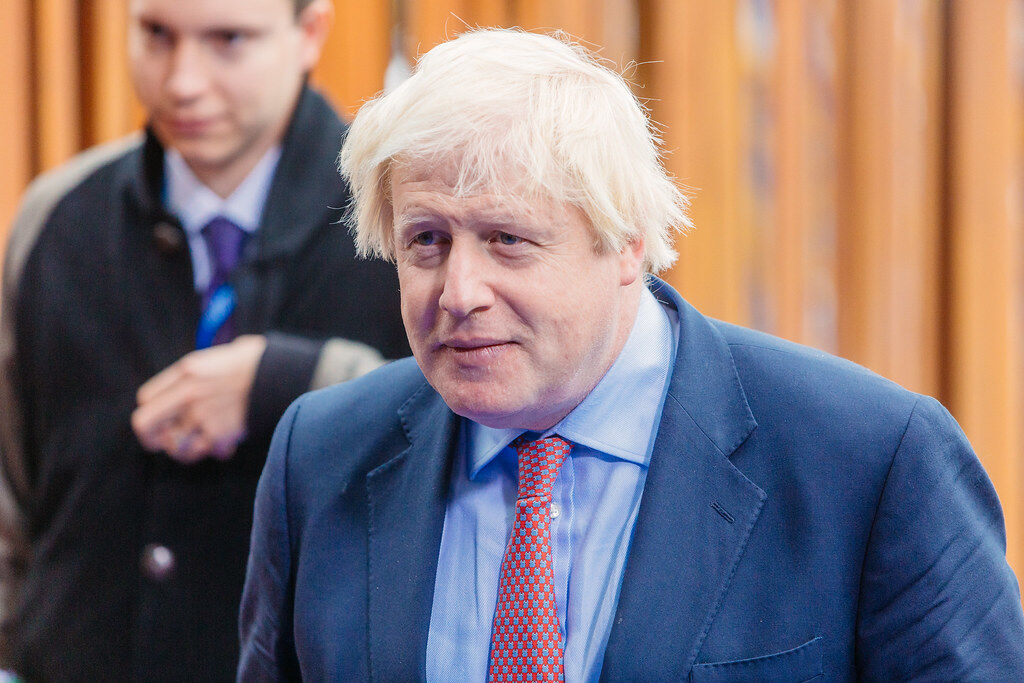Britain's already chaotic departure from the EU into further disarray
The current turmoil in the British Parliament has shaken the whole country to the core.
Boris Johnson who became British Prime minister since July now facing his own set of grapples. His idea of suspending parliament has taken the UK to square one. With the country, simply weeks away from its October 31 cut-off date to depart the European Union, Johnson's choice has been a profoundly controversial one. Those sitting on opposing benches in Parliament say the new Prime Minister is trying to shut down debate and permit the United Kingdom to slip closer to a no-deal cut Brexit from the EU, but the government insists the suspension is constitutional. Prorogation is a political procedure which marks the stop of a parliamentary session, and also refers to the time between the stop of one parliamentary session and the start of some other. During prorogation, neither Parliament nor its committees sit, and all motions, unanswered questions, and bills not but assented to routinely lapse, unless a so-referred to as "deliver-over motion" lets in for the enterprise to be resumed within the subsequent session. Recently UK's Apex Court ruled out his decision to suspend Parliament for five weeks citing it as "unlawful". Let's have a closer look at the scenario to dig deep in the turbulence
Why Johnson wanted suspension of Parliament?
Johnson announced his purpose to prorogue Parliament at the end of August. He told that his move to close Parliament would allow his government a fresh start to set out its "very exciting agenda." The prime minister asked Queen Elizabeth II to approve the suspension of Parliament from September 10 to October 14 based on needing time to prepare a new legislative agenda which she approved.
What led to the suspension being controversial?
As with tons in Britain in recent times, His detractors cited the real reason behind his controversial move was to prevent lawmakers from blocking his Brexit plans, ensuring his position and avoiding scrutiny by postponing Parliament, as Johnson has proposed, politicians could have some far less time to try to prevent or stall Britain's probably go out from the E.U. The recent speculations are to be believed that he has misled the Queen and disrupted the court legality. In a brilliant intervention, the Speaker of the House John Bercow, whose role is historically unbiased -- said it was blindly apparent, Johnson turned into trying to limit debate over Brexit. He said in a statement that "Shutting down Parliament would be an offense against the democratic process and the rights of Parliamentarians as the people's elected representatives,"
Outbreak erupted on streets
The outrage among people could be seen on the streets where thousands of civilians marched to protest against Johnson against his unprecedented move and demanded him to abdicate the post. Protests have held at places in more than 30 towns and cities across the UK, including Edinburgh, Belfast, Cambridge, Exeter, Nottingham, Liverpool, Manchester, and Birmingham. People chanted slogans like, "Boris Johnson, Shame on you! ", "Whose Democracy? Our Democracy!
The Aftermath
There are presumptions been made if the United Kingdom reaches the October 31 deadline while not having a withdrawal agreement in the vicinity, it will just leave the EU without one. The country would lose its right of entry to the EU's single market and customs union, which facilitate among the bloc's members. All sorts of legal arrangements agreed by EU bodies will no longer apply to the UK, and businesses, public bodies, and citizens would have to cope with the changes that leaving the EU could bring.
Suggestions
Taking into the quandary situation of Britain, The House of Commons could alternatively act to force the resignation of the Prime Minister, comply the appointment of a caretaker Prime Minister, bring about an early election and authorize the new Prime Minister to seek to defer Brexit till the fresh elections are not held. This way, an ultimate decision could be made on Brexit. So if, for instance, the house expressed no-confidence in Boris Johnson to keep the workplace of a high minister, he would be forced, by using the conference to surrender. In addition to passing a vote of no confidence in a Prime Minister, the house can pass a "constructive mode of confidence", which states that it has confidence in someone else to shape a government. This person can be a compromise candidate who is trusted by both sides in parliament to run a caretaker government, which makes no significant policy decisions, appointments or changes but simply undertakes the ordinary business until the new elections are held. This may be a compromise candidate who is relied on by way of both aspects to run a caretaker government, which makes no tremendous policy selections or appointments however honestly undertakes essential everyday commercial enterprise till an election is held. Parliamentary democracy has been the foundation of Britain's prosperity and stability, any disruption that tarnishes its reputation will not be tolerated by the people of the UK whatsoever and with recent series of events, it is highly evident.
Written by: Harshita Anand and Nikita Mishra




